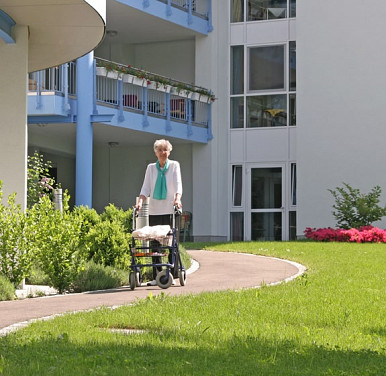There is a common misconception regarding care home fees known as the "7-year rule." Many individuals believe that if they transfer assets, such as money or property, at least seven years before entering a care home, these assets won't be considered in the financial assessment. However, this belief is not accurate, and the 7-year rule is a myth.
 Dispelling the Myth of the "7-Year Rule" for Care Home Fees
Dispelling the Myth of the "7-Year Rule" for Care Home Fees
Clarifying the truth about asset deprivation
-
Evidence and motive:Local authorities scrutinize asset transfers to determine if they were intended to evade care home fees. They assess the impact on an individual's capital, often against the £23,250 capital limit in England.
-
Intention matters: The individual's intention at the time of asset transfer is pivotal. If it's reasonable to foresee the need for care in the future, asset transfers could be considered deprivation. For example, transferring property before a needs assessment for residential care.
-
National capital:Even if asset deprivation is proven, the transferred property's value is still factored into the financial assessment as notional capital, impacting eligibility for care home financial support.
Dispelling misconceptions about the "7-Year Rule"
The notion of a fixed time limit for asset transfers to be disregarded in financial assessments is a myth.
Instead, local authorities analyze motive, intention, and impact on capital when assessing potential asset deprivation. Seek professional advice to ensure your financial decisions align with long-term care needs and regulations.
What Is Considered Deliberate Deprivation?
| Action | Considered Deliberate Deprivation? | Example |
|---|---|---|
| Gifting large sums of money | Yes, if done to avoid care fees. | Giving away savings shortly before moving into care. |
| Selling property below market value | Yes, if care needs were foreseeable. | Selling a home to a relative for less than its value. |
| Paying off debts | No, if the transaction is legitimate. | Clearing loans or credit card balances. |
Contact us:
Senior Home Plus is committed to assisting you in selecting the most suitable care home or facility. Reach out to us at 0230 608 0055 or fill out this form.
Q&A:
1. What is the 7-year rule for care home fees?
The 7-year rule typically applies to inheritance tax and refers to gifts made more than seven years before death being exempt from tax. However, for care home fees, local authorities may investigate gifts within this timeframe if they suspect deliberate deprivation of assets.
2. What is deliberate deprivation of assets?
Deliberate deprivation occurs when someone gives away money or property to avoid paying care home fees. Local authorities can include such gifts in financial assessments, even if made within the last seven years.
3. Can I give gifts to family without it being considered deliberate deprivation?
Yes, small, reasonable gifts, such as birthday or holiday presents, are usually exempt. However, large gifts or transfers shortly before moving into care may be scrutinized.
4. Is my home included in the financial assessment if I give it to my children?
If you transfer your home to your children while anticipating care needs, local authorities may treat it as deliberate deprivation and include its value in the assessment.
5. What happens if I sell my home below market value?
Selling a home below market value to avoid care fees is considered deliberate deprivation, and the local authority can still include the full market value in their assessment.
6. Are gifts made more than seven years ago safe from assessment?
Gifts made more than seven years before entering care are generally not investigated, provided there was no intention to avoid care fees at the time.
7. What types of gifts are exempt from assessment?
Exempt gifts include small amounts given regularly from surplus income, charitable donations, or reasonable holiday or birthday presents.
8. Can paying off debts be considered deliberate deprivation?
No, paying off legitimate debts, such as credit cards or loans, is not considered deliberate deprivation as long as the transactions are genuine.
9. How far back can local authorities investigate asset transfers?
There is no strict limit on how far back they can investigate, but gifts made within the last 7 years are more likely to be scrutinized if care needs were foreseeable.
10. How can I avoid issues with gifting assets and care home fees?
Consult a financial advisor or legal expert before gifting significant assets. They can help ensure the transactions are legitimate and unlikely to be classified as deliberate deprivation.
